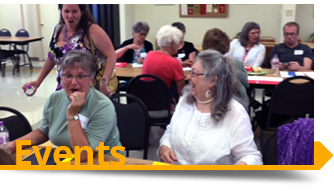[1] Two things many people learn we should never discuss in public are religion and politics. As American Lutherans we often think that the separation of church and state and the “Two Kingdoms Doctrine” mean that we should not discuss politics when we are discussing our religion and we should not discuss our religion when discussing our politics. But as Lutheran Christians we absolutely know that we are called to serve our neighbor. At the 90th anniversary of the Barmen Declaration, we must ask ourselves anew, how we are to respond when we see a movement that uses the name Christian to enact political practices that we believe do not serve our neighbor well. Do we appeal to our own understanding of Christianity or to our own understanding of plain reason when we argue for our own political hopes for better policies that better serve our neighbors?
[2]. The reason we are often told not to discuss politics and religion is because these often cause arguments that keep us from being able to work together on issues on which there is common agreement. The goal of a congregational, or any, conversation about Christian nationalism should aim at finding common ground where this is common ground rather than simply making lines that divide us. To that end, the following dialogue starter is provided.
- Jesus commands that we not be afraid. What fears do you feel in your own that heart keep you from opening yourself up to discussion about this topic?
- The church provides us resources to grow our faith. What resources in times of political distress do you find most healing and helpful?
- Consider ways that the Lutheran theology of creation grounds and calls to you. You may find it helpful to look at the October 2023 issue of JLE to consider theological foundations and church practices that ground us for ethical action. Consider:
What does it mean to believe in God, the creator of heaven and earth?
Who is my neighbor within creation?
What is my responsibility, as one created in the image of God?
- Finally, grounded in faith rather than fear, consider and share helpful ways of expressing your own political views when you encounter those who use Christianity to advocate for policies you believe causes harm to ourselves and our neighbors.




